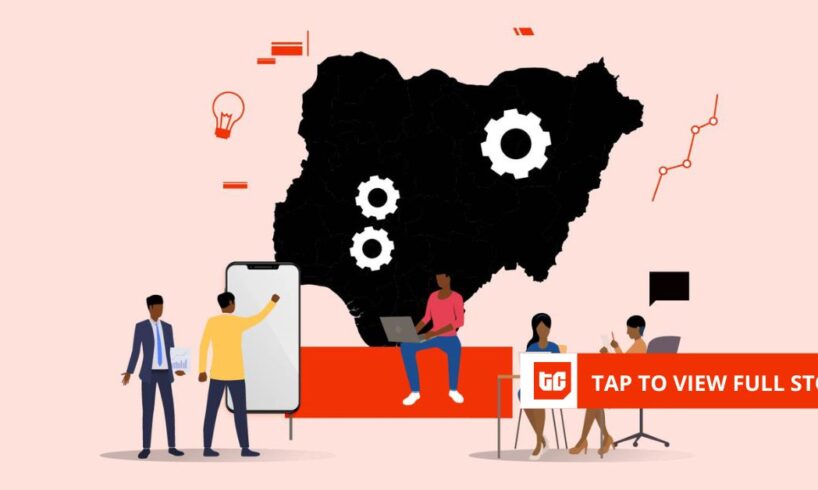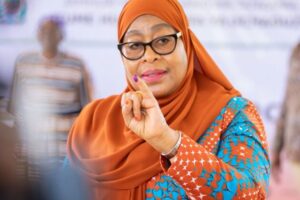
We were connected across screens and time zones. I was in Nigeria, and she was in the UK. Two designers, two continents, one shared ambition: to thrive in tech, not just as participants, but as forces shaping its future. That connection wasn’t remarkable because it crossed borders. It was remarkable because the border didn’t matter. I was mentoring her, an early-career UX designer living in the UK, while I was still in Nigeria. At the end of the mentorship programme, someone with no prior background in design was able to land an entry-level role at BBC UK. That moment affirmed something I’ve always believed: geography is not a measure of competence.
In Nigeria, designers work in some of the most high-pressure environments in the world. Teams and processes are often lean, and products must work across a dizzying range of devices, infrastructure realities, and user behaviours. You’re not just designing screens. You’re solving for affordability, accessibility, trust, and sometimes product survival. That pressure breeds talent that is both creative and resilient. We don’t just ship products, we ship solutions that work in the real world.
The myth persists that African tech professionals are “emerging,” “promising,” or “developing.” Those words, though well-meaning, imply that we’re still catching up. It’s important to say this plainly: Nigerian tech talent is not waiting to be discovered. We’re not the future, we’re already here. The same Nigerian designers who build fintech products serving millions also work at Meta, Amazon, Google, and top consultancies globally. The bridge has already been crossed.
Designing in a UK-based team has allowed me to see the differences up close. Roles are more specialised, and there’s more room for long-term thinking. But none of this made Nigerian designers feel “less than.” It made me even more proud of what we achieve back home under constrained circumstances. And it’s not just designers. Developers, product managers, data scientists, founders, and Nigerian tech professionals are leading startups, launching unicorns, scaling platforms, and influencing global strategy. We’re not aspiring to international standards. In many cases, we’re raising them.
The gap is never in ability; it’s in recognition, access, and opportunity. It’s about building an ecosystem that gives more people the chance to show it. There are already successful templates we can learn from. Other countries have shown us what’s possible; we’d be wise to take notes.
India, for example, spent decades building its reputation as a global IT hub. It didn’t happen overnight. It was a coordinated mix of government support, investment in technical education, outsourcing models that provided people with global exposure, and a strong national identity that said, “We belong at the table.” Similarly, Eastern European countries like Ukraine and Poland positioned themselves globally through deliberate global partnerships and visibility.
We’ve had glimpses of that same energy in Nigeria: global hackathons, Andela and Decagon, and YC-backed startups built by homegrown teams. One reason international recognition came slowly is that Nigeria did not follow the traditional outsourcing path. Our ecosystem grew by solving local problems, not by selling services abroad. But now that our solutions are going global, entering foreign markets, powering startups overseas, and building products used across continents, recognition is following. The misconceptions are beginning to clear. We cannot afford to lose momentum. Not now.
What Nigeria needs is infrastructure that meets the moment. Investment in education, better internet access, cross-border policies, and industry-led platforms to scale the excellence that already exists. Hubs in Lagos, Abuja, and Port Harcourt are proven engines of innovation. We should be resourcing them like that.
I didn’t become a “global” designer the day I boarded a flight. I became one the day I solved a problem for a user in Lagos, Nigeria, who was trying to manage their inventory, or when I, at my very first internship, helped an early-stage global team get their MVP into Y Combinator’s Winter 2022 batch. That kind of impact shouldn’t be constrained by geography.
So no, Nigerian tech talent isn’t trying to catch up. We’ve been in the race and have won countless rounds. What we need now is scale, not just individual success stories, but systems that multiply them. By studying what’s worked elsewhere and adopting it, we can create a tech ecosystem that’s not just surviving, but leading. Nigerian tech was built to adapt; it was built for more.
_________
Ayomide Ogunbayo is a UK-based UX Designer with experience designing user-centered digital products across fintech, HR tech, and more.
Mark your calendars! Moonshot by TechCabal is back in Lagos on October 15–16! Join Africa’s top founders, creatives & tech leaders for 2 days of keynotes, mixers & future-forward ideas. Early bird tickets now 20% off—don’t snooze! moonshot.techcabal.com





